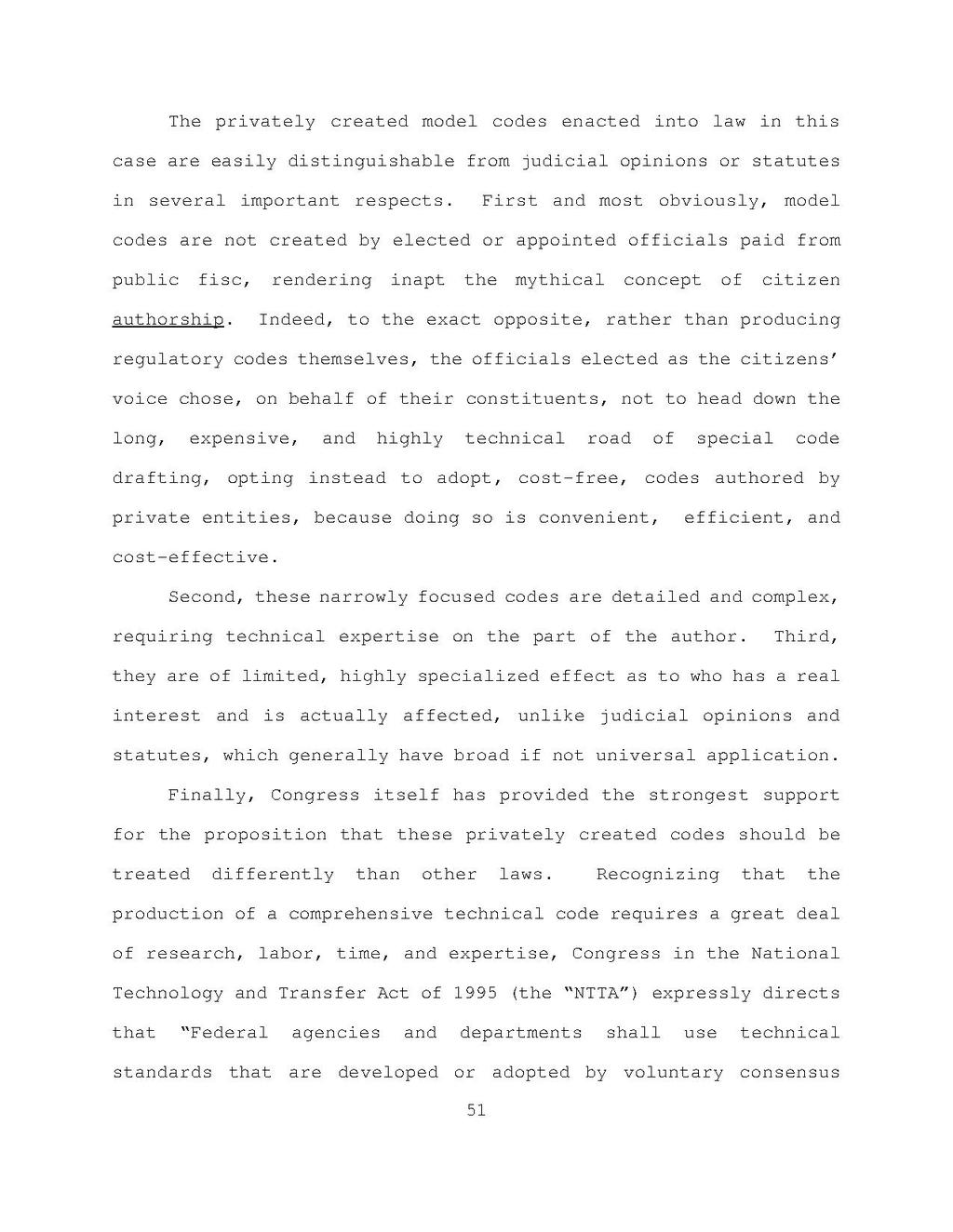The privately created model codes enacted into law in this case are easily distinguishable from judicial opinions or statutes in several important respects. First and most obviously, model codes are not created by elected or appointed officials paid from public fisc, rendering inapt the mythical concept of citizen authorship. Indeed, to the exact opposite, rather than producing regulatory codes themselves, the officials elected as the citizens' voice chose, on behalf of their constituents, not to head down the long, expensive, and highly technical road of special code drafting, opting instead to adopt, cost-free, codes authored by private entities, because doing so is convenient, cost-effective.
Second, these narrowly focused codes are detailed and complex, requiring technical expertise on the part of the author. Third, efficient, and they are of limited, highly specialized effect as to who has a real interest and is actually affected, unlike judicial opinions and statutes, which generally have broad if not universal application.
Finally, Congress itself has provided the strongest support for the proposition that these privately created codes should be treated differently than other laws. Recognizing that the production of a comprehensive technical code requires a great deal of research, labor, time, and expertise, Congress in the National Technology and Transfer Act of 1995 (the "NTTA") expressly directs that "Federal agencies and departments shall use technical standards that are developed or adopted by voluntary consensus
51
